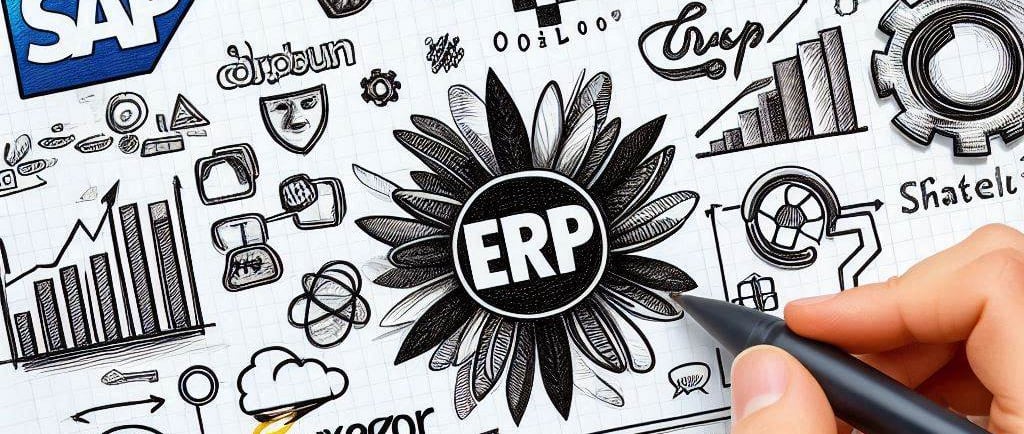ERP Unleashed: Top Benefits Every Business Owner Needs to Know
importance of ERP in business
6/25/20245 min read


Introduction
In today's fast-paced business world, staying competitive means leveraging every available tool to streamline operations, enhance productivity, and improve decision-making. One of the most powerful tools at your disposal is an Enterprise Resource Planning (ERP) system. But what exactly is ERP, and why is it so crucial for modern businesses? Let’s dive in and explore the top benefits of ERP that every business owner needs to know.
Understanding ERP Systems
Definition and Overview
ERP stands for Enterprise Resource Planning. It’s a type of software that integrates various functions across a business into one complete system to streamline processes and information across the organization. By consolidating data from different departments, ERP systems provide a single source of truth, making it easier to manage business operations efficiently.
Key Components of ERP
ERP systems typically include modules for finance, human resources, manufacturing, supply chain, services, procurement, and others. Each module pulls from the same database to ensure that data is accurate, consistent, and up-to-date.
Streamlined Business Processes
Automation of Routine Tasks
ERP systems automate many routine tasks such as order processing, payroll, invoicing, and reporting. This automation reduces the time spent on these tasks, freeing up employees to focus on more strategic activities.
Integration of Business Functions
One of the biggest advantages of ERP is the integration of various business functions. Sales, finance, HR, and other departments can access and use the same data, reducing silos and improving collaboration.
Enhanced Data Accuracy and Decision-Making
Real-Time Data Access
ERP systems provide real-time data access, which is crucial for making timely and informed decisions. Managers can quickly get insights into business performance, inventory levels, and financial status without waiting for outdated reports.
Improved Reporting and Analytics
With ERP, businesses can generate comprehensive reports and analytics that provide insights into trends, performance, and areas needing improvement. This enhanced reporting capability helps in strategic planning and operational adjustments.
Increased Efficiency and Productivity
Resource Optimization
ERP systems help optimize the use of resources, whether it's human, financial, or material resources. By having a clear view of what resources are available and where they are needed, businesses can allocate them more effectively.
Time-Saving Features
Features like automated workflows, real-time alerts, and task reminders ensure that nothing falls through the cracks and that tasks are completed promptly, enhancing overall productivity.
Cost Reduction
Lower Operational Costs
By streamlining processes and improving efficiency, ERP systems help lower operational costs. Reducing the need for multiple systems and the associated maintenance costs can also result in significant savings.
Minimized Manual Errors
Automation and integration minimize manual data entry and reduce errors. This recoveries time as well as decreases costs related to amending botches.
Improved Customer Service
Better Customer Relationship Management
ERP systems often include CRM modules that help manage customer interactions and data. This integration ensures that customer information is always up-to-date, leading to better service and satisfaction.
Faster Response Times
With real-time data and automated processes, businesses can respond to customer inquiries and issues more quickly and effectively, improving overall customer satisfaction.
Scalability and Flexibility
Adapting to Business Growth
As your business grows, your ERP system can scale with you. Whether you’re adding new locations, products, or services, ERP systems can adapt to your changing needs without significant disruptions.
Customizable ERP Solutions
Many ERP systems offer customizable solutions that can be tailored to meet the specific needs of your business. This flexibility ensures that the system remains relevant and useful as your business evolves.
Regulatory Compliance
Meeting Industry Standards
ERP systems help businesses comply with industry regulations by providing tools for maintaining accurate records and generating compliance reports. This ensures that you meet all necessary standards without extra hassle.
Simplified Compliance Reporting
Automated compliance reporting reduces the time and effort needed to prepare for audits and regulatory inspections. This feature is particularly beneficial in highly regulated industries.
Enhanced Collaboration
Unified Communication Channels
ERP systems provide a unified platform for communication and collaboration, ensuring that everyone is on the same page. This integration enhances teamwork and improves project management.
Collaboration Tools
Many ERP systems include tools for collaboration such as shared calendars, project management features, and instant messaging, making it easier for teams to work together efficiently.
Inventory Management
Real-Time Inventory Tracking
ERP systems offer real-time inventory tracking, which helps businesses maintain optimal inventory levels. This ensures that you have the right products available at the right time, reducing stockouts and overstocking.
Reducing Stockouts and Overstocking
By accurately tracking inventory levels and predicting demand, ERP systems help reduce the costs and inefficiencies associated with stockouts and overstocking.
Supply Chain Management
Streamlined Supply Chain Processes
ERP systems streamline supply chain processes by integrating data from various sources. This integration helps in better planning, forecasting, and management of the supply chain.
Vendor Management
Managing vendor relationships becomes more efficient with ERP systems. They provide tools for tracking vendor performance, managing contracts, and ensuring timely deliveries.
Human Resources Management
Employee Data Management
ERP systems include HR modules that help manage employee data, from recruitment to retirement. This centralized data management ensures accuracy and consistency across the organization.
Payroll and Benefits Administration
Automated payroll and benefits administration reduce the time and effort required to manage employee compensation and benefits, ensuring that employees are paid accurately and on time.
Challenges of ERP Implementation
Common Obstacles
Implementing an ERP system can be challenging. Common obstacles include high initial costs, resistance to change, and the need for significant training and support.
Solutions and Best Practices
To overcome these challenges, businesses should plan carefully, involve all stakeholders in the decision-making process, provide adequate training, and choose an ERP system that fits their specific needs.
Conclusion
ERP systems are a game-changer for businesses of all sizes. They offer numerous benefits, from improving efficiency and accuracy to reducing costs and enhancing customer service. By integrating various business functions into a single platform, ERP systems provide the tools needed to manage and grow your business effectively. If you haven’t considered implementing an ERP system yet, now is the time to explore how it can transform your operations.
FAQs
What is the primary purpose of ERP?
The primary purpose of ERP is to integrate various business processes and functions into a single system to streamline operations and improve data accuracy and decision-making.
How does ERP improve efficiency?
ERP improves efficiency by automating routine tasks, reducing manual data entry errors, and providing real-time access to data, which helps in making informed decisions quickly.
Can small businesses benefit from ERP?
Yes, small businesses can benefit from ERP by improving efficiency, reducing costs, and providing better insights into business operations, which can drive growth and competitiveness.
What are the costs associated with ERP implementation?
The costs of ERP implementation can vary widely based on the size of the business, the complexity of the processes, and the specific ERP solution chosen. Costs include software, hardware, training, and ongoing maintenance.
What amount of time does it require to execute an ERP framework?
The implementation timeline for an ERP system can range from a few months to a couple of years, depending on the complexity of the business processes and the scope of the implementation.






